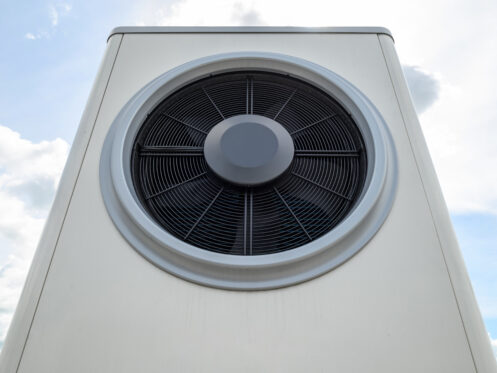As a homeowner in San Diego, CA, you are constantly seeking ways to improve the energy efficiency, comfort, and overall value of your home. One of the most effective solutions is to integrate a heat pump system into your living space. These versatile systems can provide both heating and cooling, making them a popular choice for energy-conscious homeowners. However, with numerous available options, selecting the ideal heat pump system for your home can be daunting.
When researching heat pump systems, you will quickly discover that there are multiple types available. The three main categories are air-source heat pumps, ground-source (geothermal) heat pumps, and mini-split (ductless) heat pumps. Each type has its advantages and disadvantages, and it is essential to understand their differences before making a decision. Continue reading as Friar’s Heating & Air discusses each of these factors in detail, enabling you to make an informed decision when selecting a heat pump system for your home.
1. Understand the Different Types of Heat Pumps
The first step in the decision-making process is familiarizing yourself with the three primary heat pump types:
Air-Source Heat Pumps
These systems use the outdoor air as their heat source in winter and as a heat sink in summer to efficiently warm or cool your home. Air-source heat pumps are cost-effective, energy-efficient, and suitable for most climates, including San Diego, CA.
Ground-Source (Geothermal) Heat Pumps
Geothermal heat pumps use the stable temperature of the ground as their heat exchange source. While they have a higher upfront cost than air-source heat pumps, geothermal systems offer more significant energy savings in the long run. These systems are durable and need less maintenance.
Mini-Split (Ductless) Heat Pumps
Mini-split heat pumps are an excellent option for homes without ductwork. They provide targeted heating and cooling to individual rooms or zones, allowing for greater temperature control and energy savings. Additionally, these systems are easy to install and require less invasive modifications to your home.
2. Consider the Size and Capacity of the Heat Pump
Proper sizing is crucial to ensure the heat pump system operates optimally and maintains a comfortable temperature throughout your home. A heat pump that is too small will struggle to maintain the desired temperature, leading to higher energy consumption and decreased comfort levels. On the other hand, an oversized system may cycle on and off frequently, causing wear and tear on the components and shortening the system’s lifespan.
Our HVAC professional can perform a load calculation to determine the appropriate size and capacity for your home, considering factors such as square footage, insulation levels, and climate.
3. Evaluate Energy Efficiency Ratings
Heat pumps are rated for their energy efficiency, which can directly impact your utility bills and overall energy consumption. Two key ratings to consider are the Seasonal Energy Efficiency Ratio (SEER) and the Heating Seasonal Performance Factor (HSPF). SEER measures the system’s cooling efficiency, while HSPF measures its heating efficiency. The higher the ratings, the more energy-efficient the heat pump system is. As a homeowner, opting for a system with higher ratings can result in long-term energy savings, outweighing the potential higher upfront cost.
4. Assess Compatibility With Your Existing HVAC System
It’s essential to evaluate your current heating and cooling systems and determine if a heat pump can be integrated seamlessly or if modifications need to be made. For instance,you may consider a traditional air-source heat pump if you currently have a central air conditioning system with ductworp. On the other hand, if your home does not have ductwork, a ductless mini-split heat pump system might be a more suitable choice.
Moreover, if you have a furnace or other heating system installed, it is vital to ensure compatibility with a heat pump system. Some heat pumps can be configured to work as a hybrid system, using the most efficient heat source based on external temperatures or switching between the two sources as needed.
5. Understand the Costs and Incentives
Lastly, consider the costs and incentives associated with choosing a heat pump system. Factors that impact the cost are the type of system, installation costs, and any modifications required in your home. Keep in mind that while some systems may have higher upfront costs, they may offer significant energy savings in the long run.
Additionally, research local, state, or federal incentives and rebate programs for energy-efficient systems. These incentives can significantly offset the initial investment, making the decision to upgrade to a heat pump system more financially feasible.
Conclusion
Choosing the right heat pump system for your home requires thoughtful consideration of your unique needs and preferences. By understanding the different types of heat pump systems, assessing the size and capacity, evaluating energy efficiency ratings, considering compatibility with existing HVAC systems, and reviewing costs and incentives, you can make an informed decision well-suited for your home. If you need expert guidance in selecting the perfect heat pump system or professional heat pump installation in Bonita, contact our experienced technicians at Friar’s Plumbing Heating & Air today.

